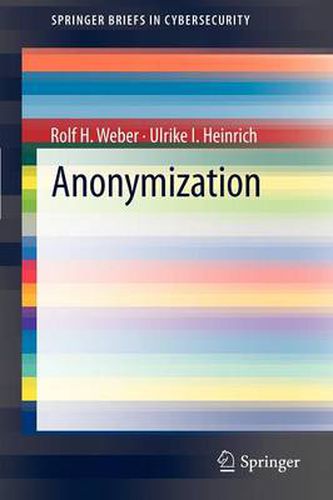Readings Newsletter
Become a Readings Member to make your shopping experience even easier.
Sign in or sign up for free!
You’re not far away from qualifying for FREE standard shipping within Australia
You’ve qualified for FREE standard shipping within Australia
The cart is loading…






This title is printed to order. This book may have been self-published. If so, we cannot guarantee the quality of the content. In the main most books will have gone through the editing process however some may not. We therefore suggest that you be aware of this before ordering this book. If in doubt check either the author or publisher’s details as we are unable to accept any returns unless they are faulty. Please contact us if you have any questions.
Within the last decade, the Internet has developed as a phenomenon encompassing social, cultural, economic and legal facets. It has become common practice to use the Internet for both the retrieval and provision of information, with the result that the Internet has become a valuable tool in everyday life. Many Internet participants are unaware that they leave data tracks on every website they pass; surfing on the World Wide Web is far from being an anonymous activity of no consequence.
In recent years a number of networking techniques have been initiated in order to accommodate the netizen’s wish for anonymous communication and the protection of their privacy in the online world. Anonymization explores the legal framework developed to help protect netizens’ privacy and their wish for anonymous communication over the Internet. It debates the value in helping to protect anonymity over a network which sees an increasing number of cybercrimes, and explores governmental interventions into anonymity requests, and whether requests should only be legal if a sufficiently legitimized public interest is given.
$9.00 standard shipping within Australia
FREE standard shipping within Australia for orders over $100.00
Express & International shipping calculated at checkout
This title is printed to order. This book may have been self-published. If so, we cannot guarantee the quality of the content. In the main most books will have gone through the editing process however some may not. We therefore suggest that you be aware of this before ordering this book. If in doubt check either the author or publisher’s details as we are unable to accept any returns unless they are faulty. Please contact us if you have any questions.
Within the last decade, the Internet has developed as a phenomenon encompassing social, cultural, economic and legal facets. It has become common practice to use the Internet for both the retrieval and provision of information, with the result that the Internet has become a valuable tool in everyday life. Many Internet participants are unaware that they leave data tracks on every website they pass; surfing on the World Wide Web is far from being an anonymous activity of no consequence.
In recent years a number of networking techniques have been initiated in order to accommodate the netizen’s wish for anonymous communication and the protection of their privacy in the online world. Anonymization explores the legal framework developed to help protect netizens’ privacy and their wish for anonymous communication over the Internet. It debates the value in helping to protect anonymity over a network which sees an increasing number of cybercrimes, and explores governmental interventions into anonymity requests, and whether requests should only be legal if a sufficiently legitimized public interest is given.